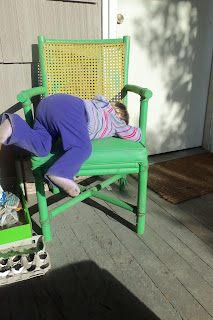Ash Wednesday Reflection (Ash Wednesday March 9)
"You are unto dust and to dust you shall return," This harsh, poetic, and very simple statement are the lasting words of many memories of Ash Wednesday. Ashes are of course a connection to the earth, to soil, and to our imminent death.
So why then, do we gather at church spread ashes on our bodies (foreheads to be precise)? This practice is a reminder of the paradox of our faith. We as people are limited by time. We will die. Our bodies will rot. We will return to earth. But, paradoxically, in faith we believe that our living continues even after our death, and even our work here on earth contributes to the kingdom on earth and the kingdom beyond.
When my Dad died he was an organ donor, which meant that the rest of his body was cremated. Among my living family, we spread my dead father's ashes in the backyard of my childhood home and then I kept some for my own life. Throughout my life I will spread tiny bit of his ashes in significant places in my life. The pastor who married my partner and I blessed our hands with my father's ashes before we were married. For me, these experiences invoke his presence in my life. They challenge me to take on some of his best attributes. These ashes, like the ashes of Ash Wednesday, remind me of the ultimate reality of death and the challenge to live a life of tremendous meaning here and now.
Perhaps though, ashes are not just about the end of life but also are part of the waxing and waning reality of life. Imagine if we cooked meals at a hearth with a fire. What symbolic meaning would ashes would have if you woke up on cold mornings, put on a coat and rushed over to the hearth to toss in some kindling on the ashes of last night's dying fire?
Ashes hold the heat of last night's fire, they are part of the reality of keeping warm, and of cooking our food. What is left after the fire has gone are a rich symbol of what has been, of what could be. At times we are on fire: in love, intellectually stimulated, excited by life, connected with God, alive in our faith. Other times we feel like the ashes: we are lonely, struggling, disconnected, and in need of prayer. In the ashes though, is hope. Hope that in the ashes is a spark that will once again (over time and with some kindling) turn again to fire.
This again is the hope we place in the resurrection, that the ashes are never the end of the fire but a new dimension of the fire. We use these ashes as a symbolic gesture to help remind us that we, are called to the kingdom of hopefullness. We are called, to the timeless work of the kingdom of God. We remember that even in our dark (ash ridden) times there is the potential spark, the remnant of fire, and in other people's dark (ash ridden) times we help to kindle their fires.
During lent then, we focus on how to be the people we are called to be. We mark ourselves (eachother) as a sign saying, "I know I will die, and I believe I will live." We use lent as a time to reflect on who we would like to be: perhaps more reflective, more prayerful, more of service, more in touch with people in need or how we would like to be less busy, less selfish, less consumed with things, less about material goods. As you prepare for lent, as your forehead is covered in Ashes how do you bring the kingdom of hopefulness into who you would like to be?

Comments
Post a Comment